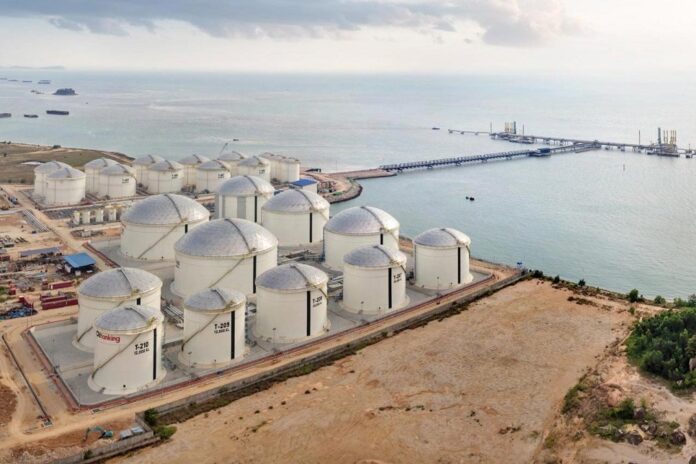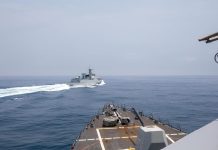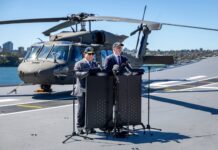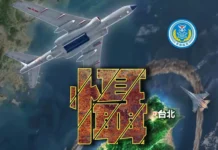
Russia has quietly opened a new route to circumvent sanctions and maintain its oil exports—this time through a remote Southeast Asian port, Ukraine’s Foreign Intelligence Service reported on May 11, United 24 Media reports.
In 2025, the Indonesian port of Karimun emerged as Russia’s largest offshore transshipment hub for oil and petroleum products, according to the Ukrainian intelligence and vessel-tracking data.
The terminal, situated within a free trade zone and technically outside Indonesian government jurisdiction, enables Russian exporters to obscure the origin of their shipments and rebrand them as Indonesian fuel.
Shipments of Russian oil to Karimun have surged in recent months. Analytics firm Kpler reports that Russian crude accounted for over 60% of deliveries to the terminal since October 2024, hitting 100% in April 2025. By contrast, during the first half of 2024, Russian oil made up between 0% and 26% of monthly imports at the terminal.
Before this year, Russian fuel deliveries to Karimun were sporadic. But since January 2025, the port has received more than 500,000 tons (about 3.2 million barrels) of fuel oil from Russia’s Ust-Luga port — nearly five times the volume recorded during the same period in 2024.
Another 217,000 tons (1.6 million barrels) of Russian diesel has also been delivered this year — a category that saw no recorded shipments in 2024. March 2025 marked a record high, with 590,000 tons of oil products exported from the terminal.
The port’s free trade zone status provides a crucial loophole as Russian oil is blended with products from other sources and re-labeled as Indonesian. Once reclassified, the fuel avoids Western sanctions and is shipped to major markets like Singapore, Malaysia, and China.
According to Kpler, at least three sanctioned tankers — subject to EU or UK restrictions — docked at Karimun between March and April 2025. These shipments are typically handled by obscure trading companies that frequently rebrand or change names, making enforcement and tracking more difficult.
Indonesia’s Ministry of Energy told Reuters it has no oversight over the terminal, as it falls outside its jurisdiction. The Coordinating Ministry for Economic Affairs, which sits on the supervisory board for the free trade zone, declined to comment.
Novus Middle East DMCC, a Dubai-based firm that acquired PT Oil Terminal Karimun from Germany’s Oiltanking in mid-2024, also refused to respond to inquiries, as did the terminal itself.
Earlier, Indonesia denied claims that Russia submitted an official request to base military aircraft on its territory, following a report that sparked concern among Western allies, particularly Australia.



